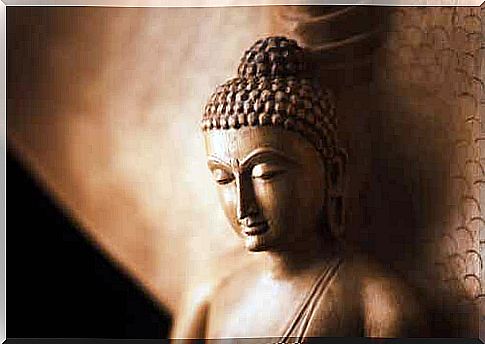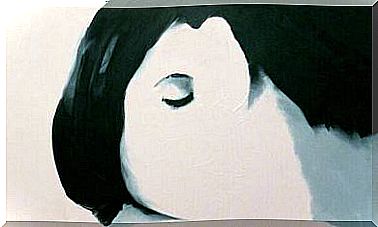Reactive Spiral, Interesting Buddhist Concept

Energy is one of the fundamental concepts of Zen Buddhism. It flows continuously and must be regulated so as not to produce imbalances. When they manifest, the so-called reactive spiral begins. A cycle from which it is difficult to escape and which often leads to anguish.
In Buddhism and mindfulness we speak of positive and negative forms of stress. Negative stress responds to the reactive spiral; this consists of a chain of attitudes and behaviors that produce a strong decompensation, which is reflected on the mind and body.
If we learn to recognize the reactive spiral, we can also avoid it. The best thing to do is to prevent the beginning of the first stage to avoid a chain that leads to the state of disharmony.

Eustress and distress
For Buddhism and in mindfulness, stress is considered neither good nor bad. However, depending on how it is channeled, it can transform into one or the other. Good stress is called eustress, while bad stress , which gives rise to the reactive spiral, is called distress.
Eustress comes from the imbalance that occurs when we challenge ourselves or set ourselves to achieve a goal. In this sense, the news can produce a certain anxiety.
However, since we want to achieve something and see it as a good thing, that anxiety translates into excitement or enthusiasm; which is why it does not produce negative consequences.
Distress, on the other hand, is a destructive tension. It is related to constant worries or having to deal with something that causes fear or rejection.
This type of stress debilitates, disturbs and also damages the organism. It manifests itself in the form of anxiety, leading us to act instinctively (unstable and not very rational).
A Buddhist story
An old Buddhist story tells of a young man who was unable to progress on his path to enlightenment. No matter how hard he tried, he could not mature either mentally or spiritually. On that occasion, Buddha wanted to help him. To show him where he was wrong, he used a metaphor.
He asked the young man: What happens when a guitar’s strings are too tight or too loose? The young man replied that in both cases the sound would be imperfect.
More than music, it would make noise. At that point, Buddha replied that spiritual growth is also governed by similar laws.
When too much effort is made in growth, the mind perceives this as a stretch. The result is an excess of tension which, instead of promoting it, blocks it.
But the same happens in the opposite situation as well. The desire for growth, not accompanied by sufficient tension, ends up being overwhelmed by laziness.

The reactive spiral
You never enter the negative spiral of stress automatically. To do this, we engage in a series of behaviors that increase internal tension. So instead of stopping this destructive force, we unconsciously give it free rein. The components of the reactive spiral are:
- Inattention. The cycle of the reactive spiral begins with inattention. That is, the lack of attention to what happens inside us. We don’t pay attention to our thoughts, emotions and physical states.
- Disconnection. It refers to the loss of contact with oneself. We are connected externally, but we stop listening to what the mind, heart and body try to communicate to us.
- Dysregulation. Being inattentive and disconnected can lead to severe discomfort. We often look for extreme solutions, such as filling ourselves with commitments or isolating ourselves.
- Disorder. Thoughts, emotions and actions become chaotic. There is nothing that really guides our behavior. We have no defined goals and we begin to act in a confused way.
- Imbalance. The above generates a strong imbalance. The imbalance leads to complex moods, such as general despondency, constant anxiety or physical illness.
It all starts with lack of attention, with distraction. The absence of awareness of the present moment prevents us from having a broader look at situations and the management of our emotions. While, if we remain in attention, we can avoid falling into the reactive spiral.









